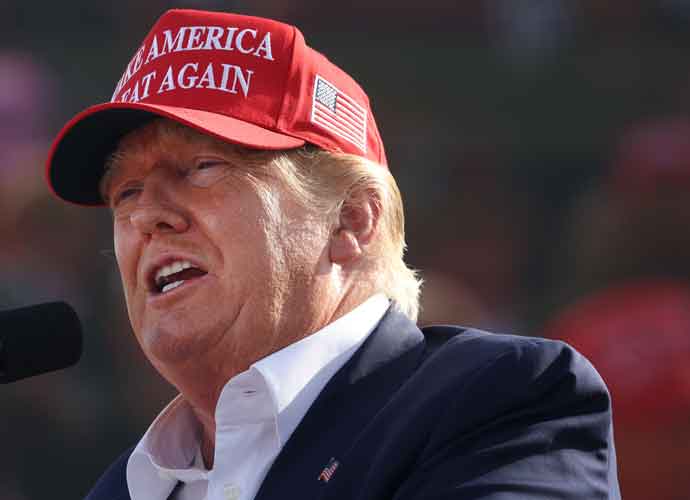Trump Didn’t Sign Illinois’ State Loyalty Oath Which Pledges That He Wouldn’t Support Overthrowing U.S. Or Illinois Governments
Former President Donald Trump refused to sign a loyalty oath in Illinois, pledging he would not advocate overthrowing the state or federal government.
The former president opted not to sign the oath when he and his campaign registered for the Illinois primary ballot.
Trump signed this oath in 2016 and 2020.
Both Joe Biden and Ron DeSantis signed the oath. In doing so, they confirmed that they do not directly or indirectly support overthrowing, the governments of the United States or Illinois.
However, some of Trump’s Republican rivals, like Nikki Haley and Chris Christie, did not sign either.
According to Illinois law, presidential candidates who desire to be on the state’s March 19, 2024, primary ballot needed to turn in nominating petitions to the state board of elections on January 5.
The state’s loyalty oath is part of the ballot-access process.
It is a remnant of the Sen. Joseph McCarthy era, which sought to persecute communists – real and imaginary.
This tradition has been maintained by Illinois lawmakers even though it was ruled unconstitutional by federal courts on free speech grounds.
Candidates also must promise that they are not communists and have no affiliation with communist groups.
“Donald Trump can’t bring himself to sign a piece of paper saying he won’t attempt a coup to overthrow our government,” Michael Tyler, communications director for the Biden campaign, said in a statement. “We know he’s deadly serious because three years ago today he tried and failed to do exactly that.”
Trump’s spokesman, Steven Cheung, did not explain why the former president did not sign the oath, but he still issued a statement.
“President Trump will once again take the oath of office on January 20th, 2025, and will swear ‘to faithfully execute the office of president of the United States and will to the best of my ability preserve, protect and defend the Constitution of the United States,'” Cheung declared.
Five Illinois voters filed a petition on January 4 to remove the former president from the state’s Republican primary ballot.
This filing was made on the same day Trump had submitted his ballot paperwork.
On January 13, Illinois Rep. Darin LaHood endorsed Trump in the Republican primary for U.S. president.
“Throughout the Republican Primary, I have kept an open mind and listened to the other candidates,” LaHood stated in a news release. “While I have a great deal of respect for those who have put their names forward in the Republican Primary, President Trump is the clear frontrunner and I believe he can beat Joe Biden in 2024.”
“By every measure, our country was better off with President Trump’s leadership in the White House, and it’s time for the Republican Party to unite behind him,” he added.
LaHood was one of the Republicans who voted against Trump’s 2021 impeachment.
Trump faces challenges in multiple states to stay on the November ballot. In December, the Colorado Supreme Court ruled that Trump was not eligible to appear on the state’s ballot due to his support of the January 6, 2021, Capitol riot. A poll taken a week after the ruling found that 54% of Americans agreed with the decision. The Supreme Court has agreed to review the decision in February.
1 Comments
Leave a comment
RELATED ARTICLES
Get the most-revealing celebrity conversations with the uInterview podcast!







Trump needs to be in jail unfit for president